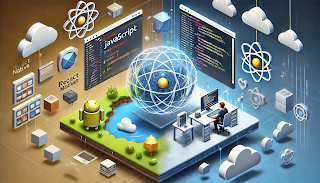Brainstorming: More Than Just Chatting with Coworkers
 |
| fig.01 Chatting with Coworkers |
In
the modern landscape of collaborative work environments, brainstorming has
evolved into much more than just casual chit-chat among coworkers. It has
become a structured and essential process for generating creative ideas,
solving complex problems, and fostering innovation within teams. While the act
of brainstorming might seem simple at first glance, its impact on driving
productivity and sparking innovation cannot be underestimated. In this article,
we will delve into the depths of brainstorming, exploring its significance,
strategies, and benefits beyond casual conversations in the workplace.
The Essence of Brainstorming:
 |
| fig.02 Brainstorming |
Brainstorming
is a purposeful and systematic approach to idea generation. It involves
bringing together a diverse group of individuals to think creatively and
generate a multitude of ideas to tackle a specific challenge or goal. Unlike
typical office discussions, effective brainstorming sessions are structured and
guided by specific rules to ensure that every participant feels empowered to
contribute without fear of judgment. This encourages a free flow of ideas,
enabling the team to explore various angles and possibilities.
Strategies for Successful Brainstorming:
 |
| fig.03 tips for Brainstorming |
Diverse
Participation: A successful brainstorming session thrives on diversity.
Different perspectives, backgrounds, and expertise lead to a wider range of
ideas. Encourage participants from various departments, experience levels, and
roles to join the discussion.
Open-Mindedness: Foster an
open and non-judgmental atmosphere. Every idea, regardless of its feasibility,
should be welcomed. Sometimes, seemingly wild ideas can spark innovative
thinking in unexpected ways.
Time Constraints: Set a
specific time limit for brainstorming sessions. This encourages participants to
think quickly and prevents overthinking. Time constraints also help maintain
energy levels and keep the session focused.
Idea Combining: Encourage
participants to build upon each other's ideas. One idea can lead to another,
and combining concepts might yield groundbreaking solutions.
Silent Brainstorming: In some
cases, allowing participants to jot down ideas silently before sharing them
verbally can result in a more equitable distribution of contributions.
Visual Aids: Incorporate
visual aids like whiteboards, sticky notes, or digital collaboration tools to
help organize ideas visually. Visual representations can help participants see
connections and patterns.
Benefits Beyond the Surface:
Enhanced Collaboration: Brainstorming
promotes teamwork and collaboration by creating an environment where
individuals can engage in active discussions, share insights, and build on each
other's ideas.
Creativity Unleashed: Brainstorming
allows employees to tap into their creative potential. The absence of rigid
constraints encourages thinking outside the box and exploring unconventional
solutions.
Problem Solving: Complex
challenges often require a diverse range of solutions. Brainstorming provides a
platform to address problems from various angles, increasing the likelihood of
finding effective solutions.
Employee Engagement: When
employees are given the opportunity to contribute ideas and see them valued,
their sense of ownership and engagement in the organization grows.
Innovation Incubator: Many
groundbreaking innovations have originated from brainstorming sessions.
Google's famous "20% time" policy, which allowed employees to work on
personal projects, led to the development of products like Gmail and Google
Maps.
Risk Mitigation: By
generating a multitude of ideas, teams can identify potential risks and
challenges associated with each solution. This proactive approach enables
better decision-making.
In
conclusion, brainstorming goes far beyond casual conversations with coworkers.
It is a strategic process that fosters innovation, creativity, and
problem-solving within teams. By implementing effective strategies and creating
an environment where every idea is valued, organizations can harness the power
of collective thinking to tackle challenges and seize opportunities. So, the
next time you gather with your coworkers to brainstorm, remember that you're
not just chatting – you're sculpting the future of your organization through
the art of collaboration and imagination.
%20(1)%20(1).jpg) |
| Vaishnavi Soni |




No comments:
Post a Comment